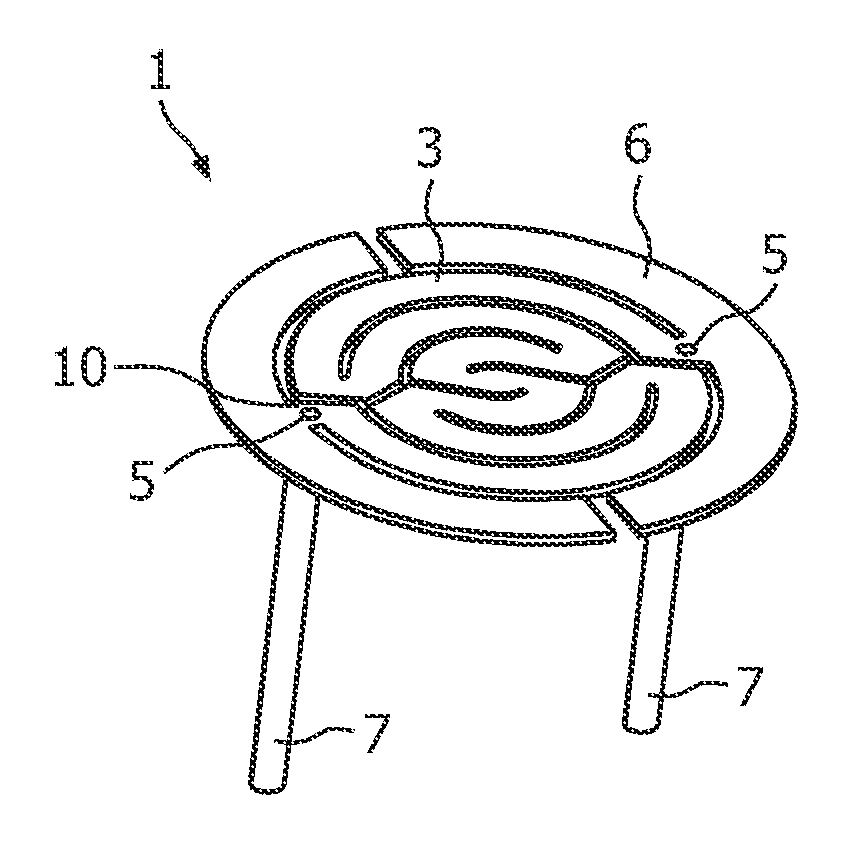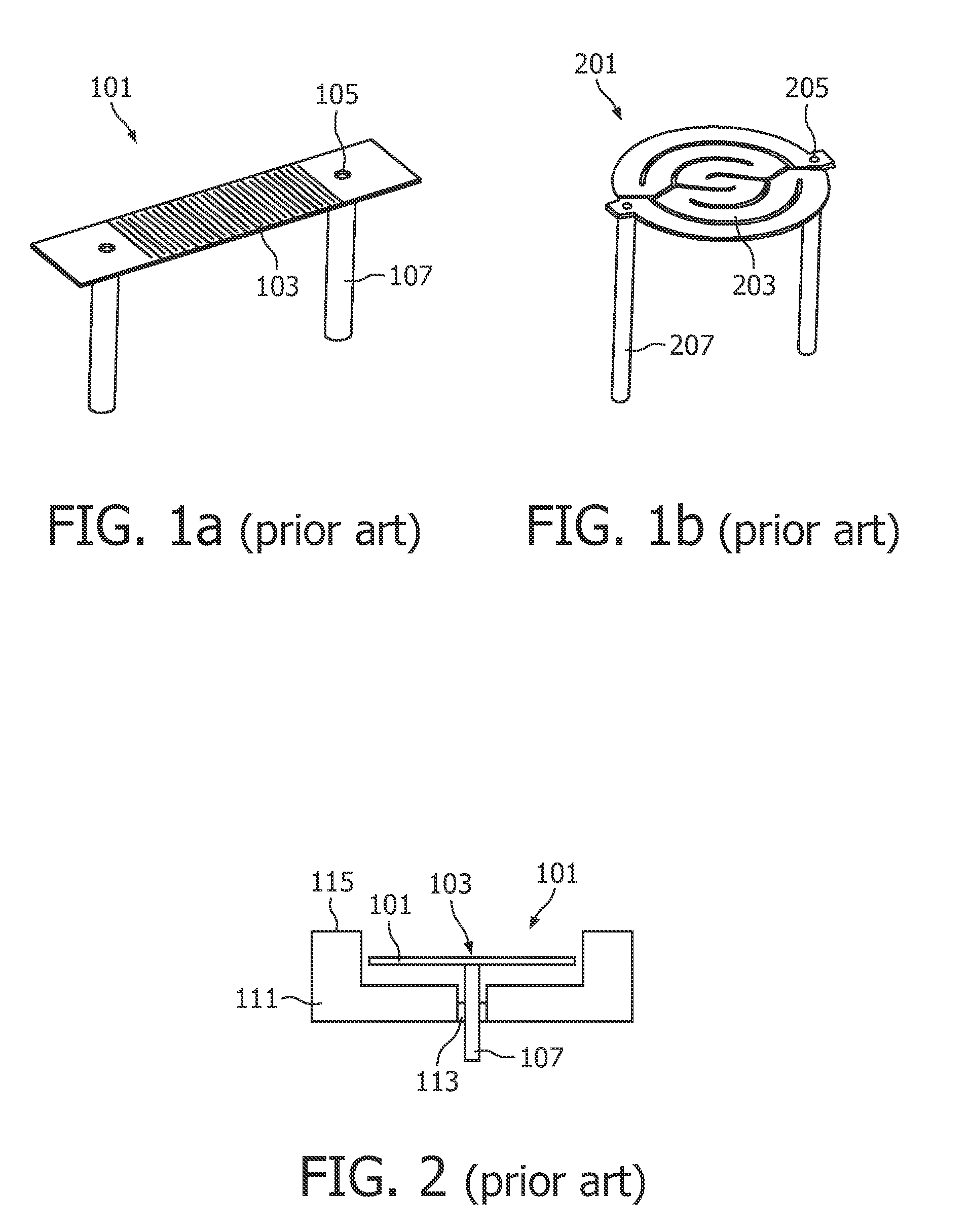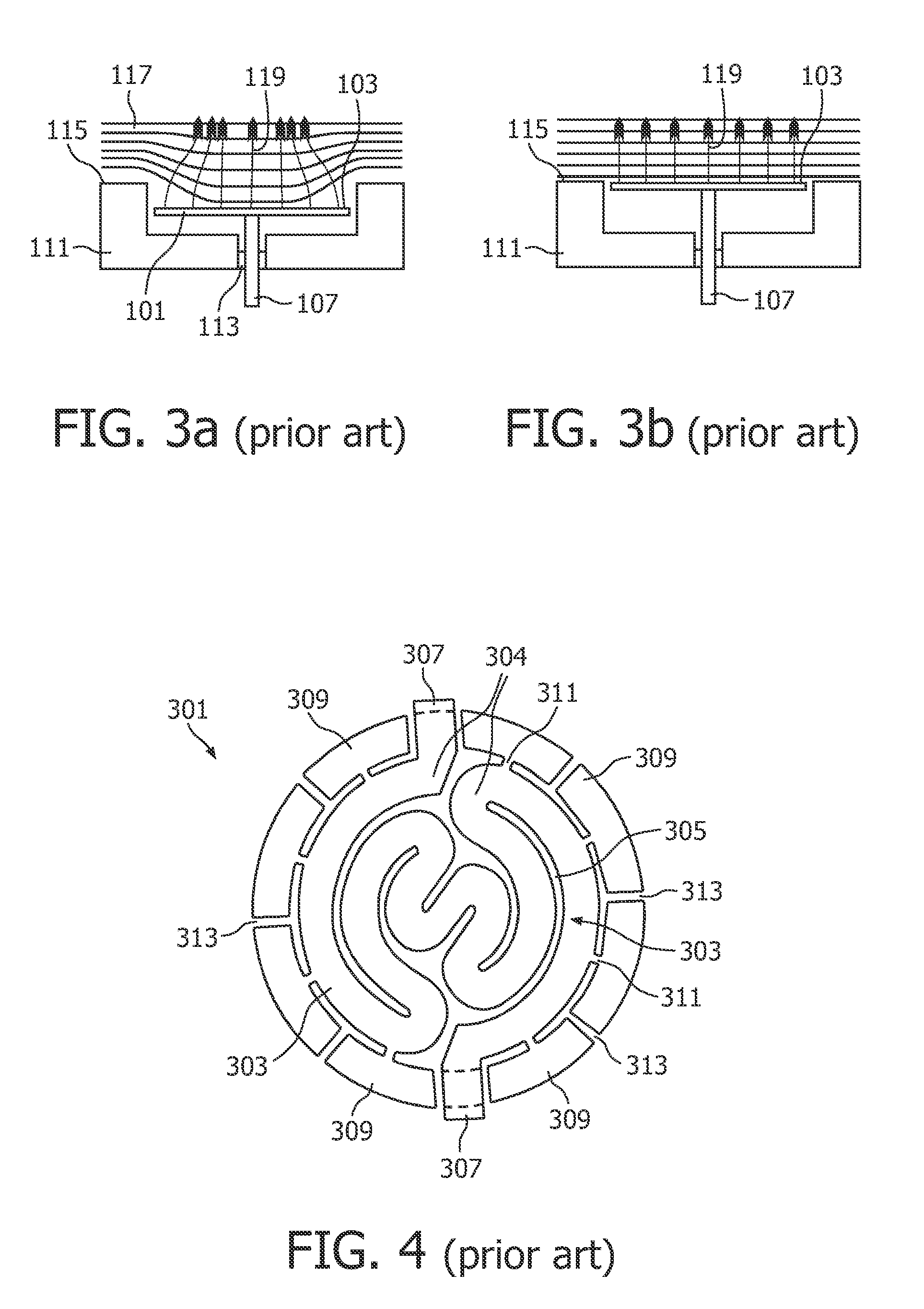Thermionic electron emitter and x-ray souce including same
- Summary
- Abstract
- Description
- Claims
- Application Information
AI Technical Summary
Benefits of technology
Problems solved by technology
Method used
Image
Examples
Embodiment Construction
[0051]FIG. 6 shows a top view of a thermionic electron emitter 1 according to a first embodiment of the invention. The electron emitter 1 comprises an inner part 2 and an outer part 4 substantially enclosing the inner part 2. On the inner part 2, connection points 5 are provided which are to be connected with terminals for applying an external voltage to a region between lateral extremities of the inner part, this intermediate region serving as heatable flat emission surface 3.
[0052]In the drawing, the emission surface 3 is shown with different hatchings wherein a dense hatching indicates a higher temperature during operation when a current is flowing through the emission surface whereas a less dense hatching indicates a lower temperature during operation. It can be seen that at the centre between the two connection points 5 there is the highest temperature whereas in the border regions the temperature remains lower.
[0053]Accordingly, the terminals connected to the connection points...
PUM
 Login to View More
Login to View More Abstract
Description
Claims
Application Information
 Login to View More
Login to View More - R&D
- Intellectual Property
- Life Sciences
- Materials
- Tech Scout
- Unparalleled Data Quality
- Higher Quality Content
- 60% Fewer Hallucinations
Browse by: Latest US Patents, China's latest patents, Technical Efficacy Thesaurus, Application Domain, Technology Topic, Popular Technical Reports.
© 2025 PatSnap. All rights reserved.Legal|Privacy policy|Modern Slavery Act Transparency Statement|Sitemap|About US| Contact US: help@patsnap.com



